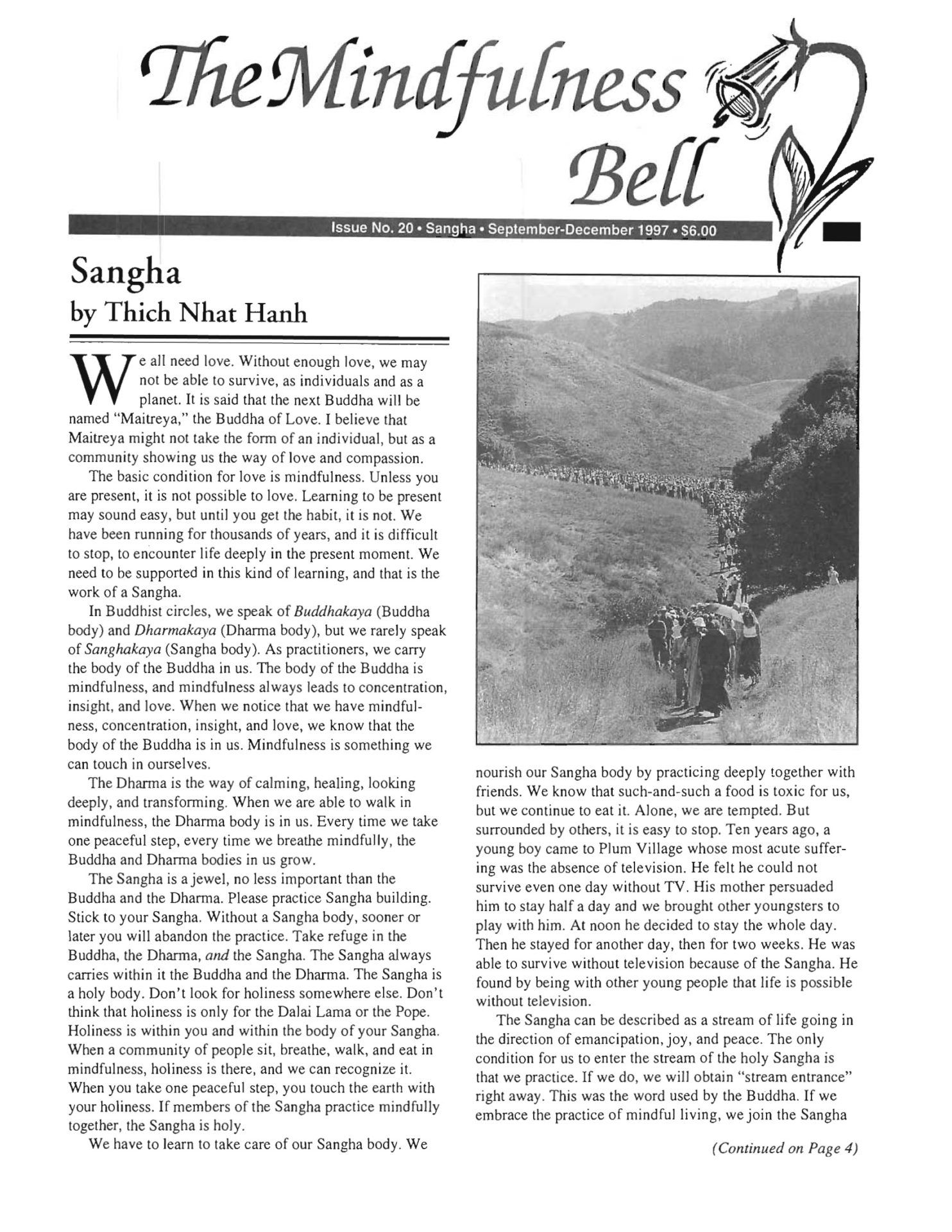By Gerard B. Wattigny
Not long ago, my job called me to sentence a man who was 76 years old. He had killed two men and wounded another. These shootings occurred in a small town where all of those involved knew one another. His son and family were very upset over the incident, feeling his father had been provoked into the shootings. The families of the victims were also upset because they felt they’d lost loved ones in a senseless argument.
By Gerard B. Wattigny
Not long ago, my job called me to sentence a man who was 76 years old. He had killed two men and wounded another. These shootings occurred in a small town where all of those involved knew one another. His son and family were very upset over the incident, feeling his father had been provoked into the shootings. The families of the victims were also upset because they felt they'd lost loved ones in a senseless argument. Both families suffered greatly from the incident. Through the practice and teachings I have learned from Thich Nhat Hanh and his students, I recognized the pain of these people and became mindful enough to see what was happening and what action was necessary to avoid further pain and anger in the future.
On the morning of the sentencing, the defendant's son requested an opportunity to address the court. The bailiff advised me that he was particularly bitter and wanted to vent his anger on the victims' families. I could feel the suffering and pain of both families. However, if he spoke, all the hurt in these families would be stirred up again. This feud could go on for generations. Because of my practice, I felt their pain and frustration, but I also knew that closure was important. Continued hatred and ill-feeling needed resolution.
I called the son up in the courtroom and addressed him in the front of the rest of the audience. I told him that I had something to say and if he still wanted to address the court after that, I would permit him to do so. I told him how we all felt his pain and the pain of his family, and that we knew that under other circumstances, his father would not have done these shootings. But I also asked him to consider the suffering of the victims' families. Their loved ones were gone forever. He, on the other hand, still had a father who was alive, though in prison. Finally, I asked him to consider his children and the children of the victims. These children are entitled to lives without a feud going on for another generation. They don't deserve to carry this pain into their future. I spoke to him for about 45 minutes until I felt that he would not speak in anger. He then said that he would not talk and took his seat for sentencing.
Under the circumstances of the crimes, I sentenced the 76-year old man to two life sentences. Afterwards, his son crossed the aisle and shook hands with the families of the victims, they all expressed mutual sorrow, and left the courtroom together in peace.
Gerard and his wife are daily practitioners in Louisiana. where he serves as a trial court judge in the 16th Judicial District Court.

